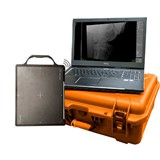A recent study discovered that AI is more accurate than an embryologist at precisely identifying which embryos have the potential to result in a healthy birth.
The technology was developed in conjunction with Dr Cristina Hickman, scientific adviser to the British Fertility Society; experts from Sao Paulo State University in Brazil; and the Boston Place Clinic in London.
AI more reliable than the human eye
During this breakthrough IVF study, an AI system was ‘trained’ to detect a good embryo from a series of images.
Incredibly, the AI was able to quantify 24 image characteristics of embryos that are invisible to the human eye.
These characteristics include:
- The size of the embryo
- The texture of the image
- The number of homogeneity cells
The study used 48 images of cattle embryos, which were evaluated three times each by human embryologists, followed by the AI system.
While the embryologists could not agree on their findings, the AI had complete agreement.
AI to assist embryologists – not replace
Director or the Boston Place Clinic, Stuart Lavery, said the technology would not replace traditional examining of chromosomes in detail – a process considered critical in identifying ‘normal’ and ‘abnormal’ embryos.
“Looking at chromosomes does work, but it is expensive and it is invasive to the embryo,” Mr Lavery said, “What we are looking for here is something that can be universal.
“Instead of a human looking at thousands of images, actually a piece of software looks at them and is capable of learning all the time.
“As we get data about which embryos produce a baby, that data will be fed back into the computer and the computer will learn.
“What we have found is that the technique is much more consistent than an embryologist, it is more reliable.
“Analysis of the embryo won’t improve the changes of that particular embryo, but it will help us pick the best one.”
It’s believed that AI has the potential to help transform IVF procedures for patients and help people to conceive quicker.
“We won’t waste time on treatments that won’t work, so the patient should get pregnant quicker,” Mr Lavery said.
“This is an innovative and exciting project combining state of the art embryology with new advances in computer modelling, all with the aim of selecting the best possible embryo for transfer to give all our patients the best possible chance of having a baby”, Mr Lavery said.
Clinical applications in the works
Work is now underway to look back at images from parents who had genetic screening and became pregnant to help the AI system learn.
“Although further work is needed to optimise the technique, we hope that a system will be available shortly for use in clinical settings.”










-160x160-state_article-rel-cat.png)






-160x160-state_article-rel-cat.png)









